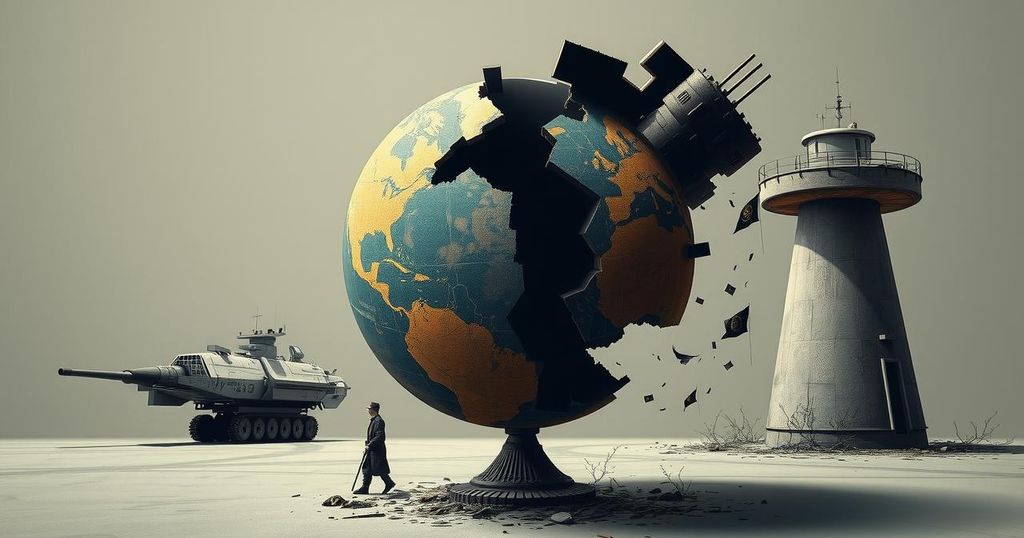President Kagame of Rwanda denied occupying the eastern DRC and criticized the UN’s MONUSCO peacekeeping mission for its failure to ensure security. He pointed out the unresolved issues rooted in historical genocide ideologies and questioned the legitimacy of Congolese President Félix Tshisekedi. Kagame emphasized the need to address these foundational problems for meaningful progress toward peace.
President Paul Kagame of Rwanda recently addressed diplomats in Kigali, where he rejected allegations that Rwanda occupies the eastern Democratic Republic of Congo (DRC) and expressed skepticism about the capacity to engage in such an act. In a 90-minute speech focused largely on the Congolese crisis, Kagame pointed out that Rwanda is currently supporting operations in the region but cannot occupy it given the current geopolitical landscape.
In his speech, Kagame criticized the United Nations peacekeeping mission in the DRC, known as MONUSCO, highlighting its failure to address ongoing security challenges in the mineral-rich eastern region. He emphasized the need to tackle the root causes of the conflict, rather than overlooking them, which has seen the resurgence of genocidal ideologies in the area.
The Rwandan leader underscored the historical context of the conflict, noting, “The very people who murdered people here in Rwanda, those who carried out the genocide, still exist, are still armed, are still practicing the ideology of genocide… on the watch of this international community that talks about values.”
Additionally, Kagame criticized Congolese President Félix Tshisekedi’s legitimacy, asserting that he has not been duly elected to address the issues in DRC and thereby projecting a distorted image of democracy. Kagame’s remarks serve to clarify Rwanda’s position and emphasize the necessity of addressing deep-rooted issues in the ongoing conflict.
Kagame’s speech reflects Rwanda’s perspective on the situation in the DRC and the critical need for the international community to reconsider their approach to peacekeeping efforts in the region.
The eastern DRC has been plagued by conflict for decades, largely due to its vast mineral wealth and the presence of various armed groups. Rwanda’s historical involvement, particularly post-genocide, complicates diplomatic relations within the region. The United Nations peacekeeping force, MONUSCO, was established to stabilize the area but has faced criticism for its inability to effectively mitigate violence and restore peace.
President Kagame’s assertions reject accusations of Rwandan occupation in the DRC and highlight his concerns regarding the efficacy of international peacekeeping efforts. He calls for a fundamental examination of the root causes of conflict rather than superficial solutions. By criticizing both the DRC leadership and UN interventions, Kagame insists on a reevaluation of both local and international approaches to achieving lasting stability in the region.
Original Source: eastleighvoice.co.ke






